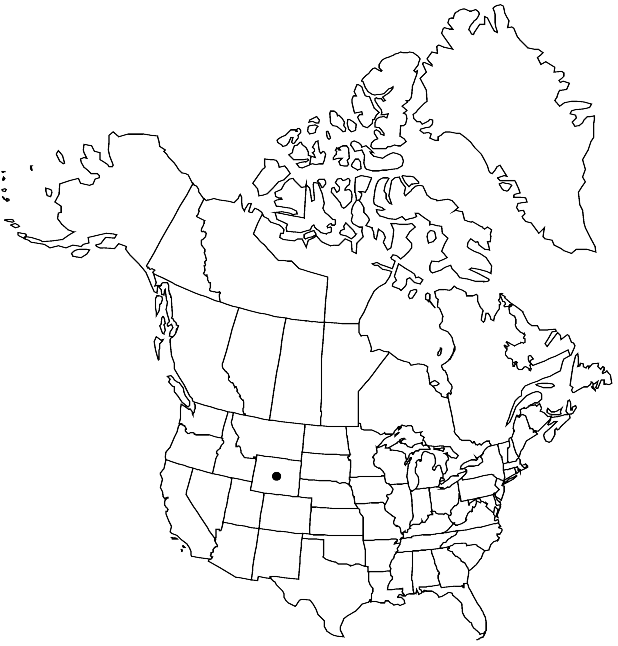Difference between revisions of "Physaria macrocarpa"
Novon 12: 325. 2002.
FNA>Volume Importer |
imported>Volume Importer |
||
| (One intermediate revision by the same user not shown) | |||
| Line 54: | Line 54: | ||
|publication year=2002 | |publication year=2002 | ||
|special status= | |special status= | ||
| − | |source xml=https:// | + | |source xml=https://bitbucket.org/aafc-mbb/fna-data-curation/src/2e0870ddd59836b60bcf96646a41e87ea5a5943a/coarse_grained_fna_xml/V7/V7_1093.xml |
|tribe=Brassicaceae tribe Physarieae | |tribe=Brassicaceae tribe Physarieae | ||
|genus=Physaria | |genus=Physaria | ||
Latest revision as of 22:30, 5 November 2020
Perennials; caudex branched; densely pubescent, trichomes (sessile or short-stalked), 4–6-rayed, rays distinct, usually furcate, rarely bifurcate, (finely tuberculate throughout). Stems few or several from base, prostrate to decumbent, (unbranched or branched), 0.5–1.5 dm. Basal leaves: blades orbicular to broadly obovate, 1.5–3 cm, margins usually entire, rarely remotely dentate. Cauline leaves (sessile or shortly petiolate); blade elliptic to oblanceolate, 1–1.5(–2.5) cm, margins entire, (apex obtuse). Racemes dense, (elongated in fruit). Fruiting pedicels (sharply recurved), 5–10 mm, (stout). Flowers: sepals ovate or oblong-elliptic, 5–5.5 mm, (lateral pair not saccate); petals cuneate or broadly obovate, ca. 7 mm, (sometimes slightly narrowed to a broad claw, apex sometimes retuse). Fruits subglobose to broadly obovoid, strongly inflated (often slightly angustiseptate), 5–7 mm, (papery); valves sparsely pubescent; (septum fenestrate, perforate, or obsolete); ovules 4–8 per ovary; style 2–3 mm. Seeds somewhat flattened.
Phenology: Flowering May–Jun.
Habitat: Gypsum-clay hills and benches, naked clay flats and barren hills
Elevation: 2000-2400 m
Discussion
Of conservation concern.
Physaria macrocarpa is found in the Great Divide and Green River basins.
Selected References
None.
